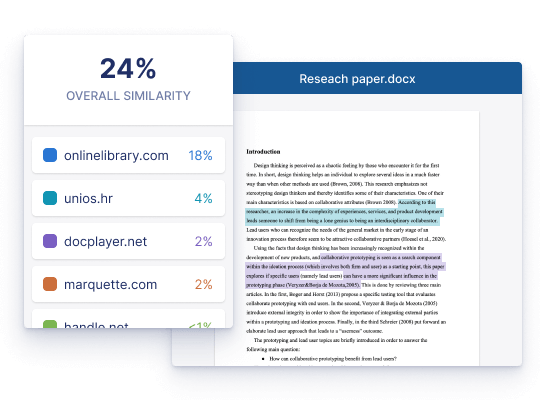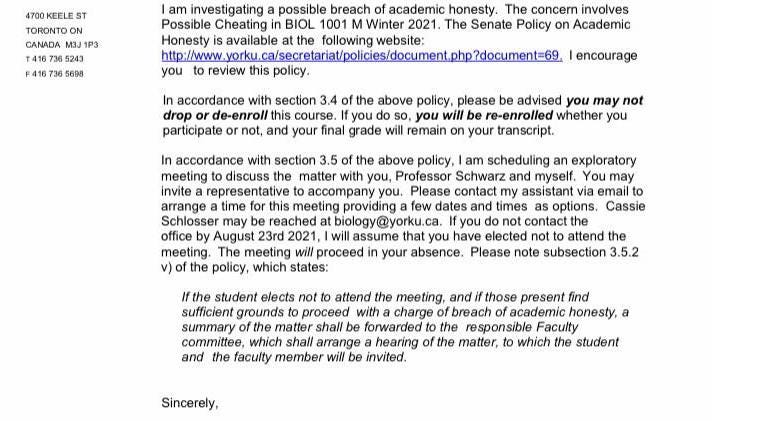Navigating Academic Integrity in Your First College Test
How the Rise of AI is Changing Academic Integrity in College?
As many colleges start this week, you’re likely busy checking off the usual tasks— moving in to the dorm, finding classrooms, getting textbooks, and organizing your schedule. But let's skip the standard advice and dive into something that could significantly impact your college experience: your first test, which is just around the corner, and the critical concept of Academic Integrity.

The Course Syllabus: More Than Just a Schedule
In your first week, you’ll receive a course syllabus. This syllabus or course outline is your roadmap for this course, detailing everything from test dates to assignment deadlines. I’m ensure everyone can highlight these dates on your calendar, but there’s always one section at the bottom of syllabus that often gets overlooked—Academic Integrity.
This section, usually tucked away at the end, outlines the expectations for honest and ethical behavior in your academic work. It’s not just there fill out the blanks; understanding and adhering to these guidelines is essential to your success in college.
What is Academic Integrity?
Academic integrity means upholding the values of honesty, trust, fairness, respect, and responsibility in all your academic endeavors. It’s about doing your own work and giving credit where it’s due. Violating these principles—whether intentionally or accidentally—can have serious consequences.
According to the International Center for Academic Integrity (ICAI), about 68% of undergraduate students admit to some form of cheating during their college careers. This statistic isn't just a number; it’s a reflection of a widespread issue that colleges are increasingly vigilant about, especially with the rise of AI tools.
Types of Academic Integrity Violations
Violations of academic integrity can take many forms, each with its own level of severity:
Plagiarism: Using someone else’s words or ideas without proper citation. Even unintentional plagiarism is still a violation.
Cheating: Using unauthorized materials during a test, copying from another student, or letting someone else do your work.
Fabrication: Inventing data, sources, or other information in your assignments.
Facilitation: Helping another student commit an academic integrity violation.
Misuse of AI Tools: Relying on AI to generate content without proper attribution or using it to complete assignments that should reflect your own understanding.
See Sample Syllabus Statement about Academic Integrity from York University.
Academic Integrity in the Age of AI
As AI tools become more accessible, their use among college students is insane, likely to hit 90% in this coming fall semseter. This rapid adoption brings new challenges for faculties maintaining academic integrity. Professors and administrators are working to address these concerns, especially as the line between proper use and academic dishonesty becomes increasingly blurred. For example, using an AI tool to generate answers for a homework assignment might seem harmless, but it can easily cross into cheating territory. Colleges are aware of these issues and are actively finding ways to handle them.
In 2023, the Educational Testing Service (ETS) conducted a survey and found that more than 50% of faculty members were worried about students misusing AI tools in ways that violate academic integrity policies. This doesn’t mean you can’t use these tools, but it does mean you must do so responsibly and ethically.
Turnitin's AI detection tool is integrated into its existing workflow and provides educators with detailed reports that highlight the percentage of a document that may have been generated by AI tools like ChatGPT. Moreover, the tool now includes features to detect AI paraphrasing, where students might use AI to rephrase text to evade detection. This addition is crucial as it helps educators identify not just direct AI-generated content but also content that has been subtly modified to bypass detection systems.
These tools are part of a broader effort to ensure academic integrity, especially as students increasingly use AI tools in their work. Institutions are also encouraged to engage in open discussions with students about acceptable uses of AI and to update academic policies to reflect the evolving technological landscape. This comprehensive approach helps in fostering ethical use of AI while deterring potential academic misconduct.
What Happens If You Violate Academic Integrity?
If you’re caught violating academic integrity, the process is more involved than just receiving a failing grade. Here’s what you can expect:
Initial Reporting: If a professor or TA suspects a violation, they will typically report it to the academic integrity office or the department responsible for these cases. You may not even be aware this report has been made until you're contacted by the office.
Testimony and Investigation: The professor might be asked to provide a written statement or testify about the incident. This could include evidence like your submitted work, notes from the test, or even video surveillance in the exam room.
Hearing: Depending on the severity of the violation, you might be required to attend a formal hearing. Here, you’ll have the opportunity to present your side of the story. You can bring evidence, such as drafts of your work or notes, to support your case. Some schools allow you to have an advisor or advocate with you during the hearing.
Decision and Penalty: After the hearing, a decision will be made. Penalties can range from a warning or a zero on the assignment to more severe consequences like a failing grade in the course, academic probation, suspension, or even expulsion. For example, some syllabi state: "Any violation of academic integrity, including plagiarism or cheating, will result in an automatic zero on the assignment and may lead to further disciplinary actions."
Sample Email from faculty to detecting possible academic dishonesty.
How to Respond If You’re Accused
If you find yourself in a situation where you’re accused of violating academic integrity, here’s what you can do:
Stay Calm: Panic won’t help. Take a deep breath and try to understand the specifics of the accusation.
Review the Evidence: Ask for any evidence that has been collected against you. Review it carefully and see if there’s a misunderstanding or if you need to provide additional context.
Prepare Your Defense: Gather any materials that might support your case, such as drafts of your work, notes, or communications with the professor.
Seek Advice: If your school allows it, consult with an academic advisor or legal counsel who can guide you through the process.
Be Honest: If you made a mistake, own up to it. Honesty can sometimes lead to a more lenient penalty, especially if it’s a first-time offense.
How to Avoid Academic Integrity Violations
Avoiding academic integrity violations is straightforward if you follow these guidelines:
Understand the Rules: Each course may have its own specific guidelines on what constitutes an academic integrity violation. Don’t just skim these—read them thoroughly.
Properly Cite Sources: Always give credit where it’s due, whether you’re quoting directly or paraphrasing someone else’s ideas.
Use AI Tools Responsibly: AI can be a helpful tool, but don’t let it do the work for you. Always ensure that the work you submit reflects your own understanding and effort.
Ask for Help: If you’re struggling with an assignment, reach out to your professor, a TA, or a tutor instead of resorting to dishonest methods.
As you are starting on this new academic journey, remember that your integrity is your most valuable asset. It’s what will sustain you through the challenges ahead and shape the person you become. The road may be long and sometimes difficult, but by upholding the principles of academic integrity, you’ll find it’s a journey worth taking.
Good luck, and may your college experience be one of growth, learning, and success—built on a foundation of honesty and integrity.
Disclaimer: The sample materials, syllabus excerpts, and email templates mentioned in this article are intended for educational purposes and do not violate any copyright. It's important to note that various institutions may have different options, policies, and guidelines regarding academic integrity and the use of AI tools. Always refer to your specific institution's policies to ensure compliance.





